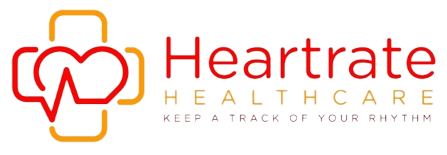In the rapidly evolving landscape of healthcare, heart disease remains the leading cause of death in the United States. As a result, hospitals are under immense pressure to offer innovative, efficient, and patient-centric heart care solutions. This guide explores the latest technologies, strategies, and services available to help U.S. hospitals enhance their cardiovascular care capabilities and outcomes.
1. Understanding the Need for Advanced Heart Care
Cardiovascular diseases (CVDs) account for nearly 1 in every 4 deaths in the U.S. With such alarming statistics, hospitals must adopt a proactive and strategic approach to heart care. Patients now demand faster diagnoses, less invasive procedures, and more personalized care. Video
Key Drivers for Enhanced Heart Care Solutions:
-
Aging population
-
Increasing cases of obesity and diabetes
-
Technological advancements in diagnostics and treatment
-
Shift toward value-based care and patient satisfaction
2. Innovative Diagnostic Technologies
Accurate and early diagnosis is crucial in heart care. Modern hospitals are leveraging advanced diagnostic tools to detect heart issues at earlier stages.
Top Diagnostic Solutions Include:
-
AI-Powered ECG Machines: Faster interpretation and accurate risk stratification
-
Wearable Cardiac Monitors: Real-time tracking for arrhythmias and irregular heart rhythms
-
3D Echocardiography: Detailed heart imaging for better treatment planning
-
CT Angiography and MRI: Non-invasive imaging for comprehensive cardiac assessment
3. Treatment Innovations and Surgical Advancements
Modern heart care is defined by minimally invasive procedures, robotic-assisted surgeries, and personalized medicine.
Key Treatment Approaches:
-
Transcatheter Aortic Valve Replacement (TAVR): A less invasive alternative to open-heart surgery
-
Hybrid Operating Rooms: Integration of diagnostics and surgical procedures in real time
-
Remote Patient Monitoring Post-Surgery: Ensures faster recovery and reduced readmissions
-
Customized Medication Plans: Based on genetic profiling for better outcomes
4. Heart Care Outsourcing Services
Many hospitals are now partnering with third-party providers for specialized BPO services related to heart care. These services can reduce operational costs and increase efficiency.
Commonly Outsourced Services:
-
Medical Billing and Coding for Cardiology
-
Telecardiology and Virtual Consultations
-
Remote Diagnostic Interpretation
-
Data Management and Compliance Support
Partnering with BPO companies like Heartrate Healthcare enables hospitals to streamline non-core activities while focusing on clinical excellence.
5. Digital Health Tools and Telemedicine
Digital health is transforming how heart care is delivered. With patient portals, mobile apps, and virtual care, hospitals are now able to offer heart care beyond their walls.
Telecardiology Features:
-
Virtual heart consultations for remote patients
-
Real-time data sharing with cardiologists
-
Medication adherence tracking and patient reminders
Benefits of Telehealth in Heart Care:
-
Greater access in rural or underserved areas
-
Reduced patient travel and wait times
-
Continuous monitoring and follow-up care
6. Integrating AI and Big Data in Cardiology
Artificial intelligence and big data are now crucial in enhancing diagnosis, predicting outcomes, and personalizing treatments in cardiology.
Applications of AI in Heart Care:
-
Predictive analytics to prevent heart attacks
-
Automated interpretation of diagnostic tests
-
Chatbots for patient support and education
Data Analytics Benefits:
-
Identifying trends in patient outcomes
-
Monitoring quality and performance metrics
-
Enabling evidence-based decision-making
7. Workforce Training and Development
Having a well-trained staff is vital in delivering effective heart care. Hospitals are investing in continuous training programs to stay updated on new technologies and treatment protocols.
Training Areas:
-
Advanced cardiac life support (ACLS)
-
Robotic surgery handling
-
Patient communication and bedside manner
-
Data and tech usage in cardiology
8. Financial Planning and Insurance Navigation
Heart care can be expensive. Hospitals must assist patients with navigating insurance, understanding billing, and accessing financial assistance programs.
Best Practices:
-
Transparent pricing models
-
Dedicated insurance liaison officers
-
Partnerships with financing institutions
9. Compliance and Accreditation
Maintaining compliance with healthcare regulations ensures quality and trust. Accreditation from institutions like The Joint Commission or the American Heart Association (AHA) can boost hospital credibility.
Key Focus Areas:
-
HIPAA compliance in heart care data
-
Quality benchmarks for cardiac outcomes
-
Regular audits and certification renewals
10. Partnering with Heart Care Marketing Experts
Hospitals often need support in promoting their heart care services effectively. Marketing experts like Heartrate Healthcare offer specialized solutions for visibility, branding, and patient acquisition.
Marketing Strategies Include:
-
SEO and PPC campaigns for heart care services
-
Patient testimonial videos
-
Physician branding and LinkedIn marketing
-
Email campaigns and appointment reminders
Conclusion
Delivering high-quality heart care is not just about medical treatment—it’s about integrating advanced technologies, smart operations, patient-centered communication, and expert partnerships. By embracing the latest innovations and outsourcing non-core services, U.S. hospitals can deliver exceptional cardiovascular care while maintaining cost efficiency and compliance.
To explore tailored heart care solutions for your facility, visit https://heartratehealthcare.com.







Contents of this website are good and appreciative. Congratulation
Best Child Specialist Hospital in Bhilai
This was such an informative post! I really liked how you explained PCOS in simple terms and connected it with natural healing. I’ve been researching Ayurvedic approaches for PCOS treatment in Delhi, and your insights make so much sense. Have you seen any specific dietary plans work especially well for young women? Would love to hear your thoughts!
PCOD treatment in delhi